Founder Sazo Idemitsu

The Origin of Management Ningen-Soncho
Ningen-Soncho means that humans respect humans, and is a way of thinking that centers on humans. This means that we should reflect on ourselves and become people worthy of respect, and in this way we should respect each other. What kind of people should we reflect on and respect? This is also incredibly difficult if you put it into perspective. However, this is also extremely simple if you think about it practically, using common sense and without logic. The goal is to become a person who is worthy of respect and is not ashamed of being someone who cares for himself, creates peace, and contributes to the promotion of human welfare. Going further, these people should respect each other and work together to promote peace and welfare. ”
(Source: “My Sixty Years Volume 2” pages 61-62)

The Life of Sazo Idemitsu
| 1885 | Sazo Idemitsu is born |
|---|---|
| 1891 | Enrolled in Akama Elementary School |
| 1895 | Enrolled at Togo High School |
| 1901 | Entered Fukuoka Commercial School |
| 1905 | Entered Kobe High School of Commerce |
| 1909 | Joined Sakai Shokai |
| 1911 | Idemitsu Shokai founded |
| 1913 | Expanded into Shimonoseki and began selling Petroleum for fishing boats. |
| 1919 | Developed wheel oil to prevent freezing and provided it to Manchuria Railway. |
| 1923 | Devised a distribution ship with a measuring device and started refueling the contents. |
| 1929 | Worked hard to revise oil tariffs in Korea. Contributing to correction of high price oil sales by foreign oil companies |
| 1940(founded in 1911) | Established Idemitsu Kosan |
| 1945 | All overseas stores are closed, and Idemitsu preaches "Praise the Imperial broad-cast announcing the end of World War Ⅱ", which clearly shows Idemitsu's way of life after defeat in the war. |
| 1946 | Started tank bottom oil recovery and other businesses (agriculture, fisheries, radio repair and sales, printing). All abolished by 1951 |
| 1947 | Idemitsu Shokai and Idemitsu Kosan merged |
| 1949 | The only ethnic oil company not affiliated with foreign capital to be designated as a wholesale oil company |
| 1951 | Wrote a “consumer-oriented oil policy” and made recommendations to government authorities |
| 1953 | Importing Iranian oil (Nissho Maru Incident) |
| 1957 | Tokuyama Refinery completed. |
| 1962 | Munakata Maru No. 1 was in distress, and a company funeral was held. |
| 1966 | Resigned as president of Idemitsu Kosan and became chairman |
| 1981 | Eternal sleep |

Learn about Sazo Idemitsu through anecdotes
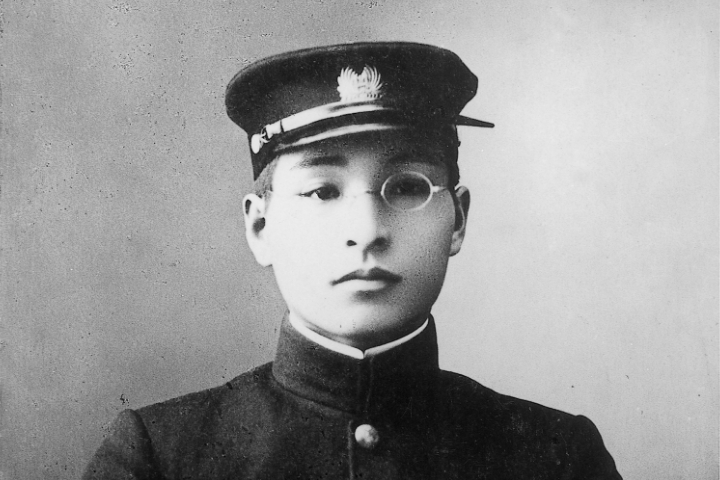
Joined Sakai Shokai as apprentice
Learn more

Started selling diesel Petroleum for fishing boats
Learn more
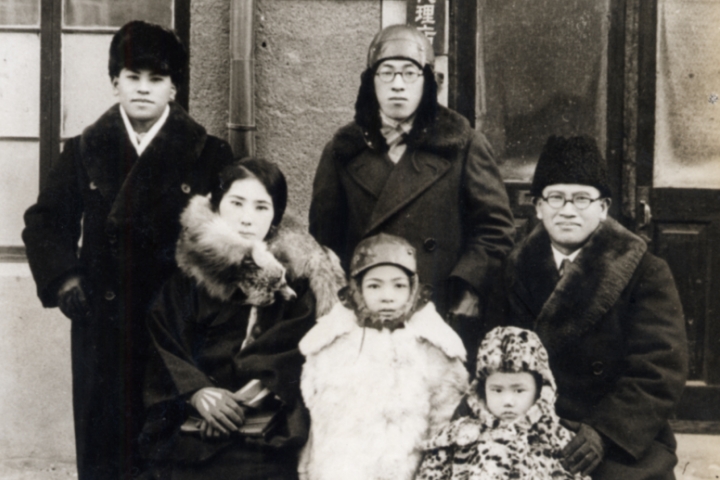
Fierce resistance and opposition to oil control
Learn more
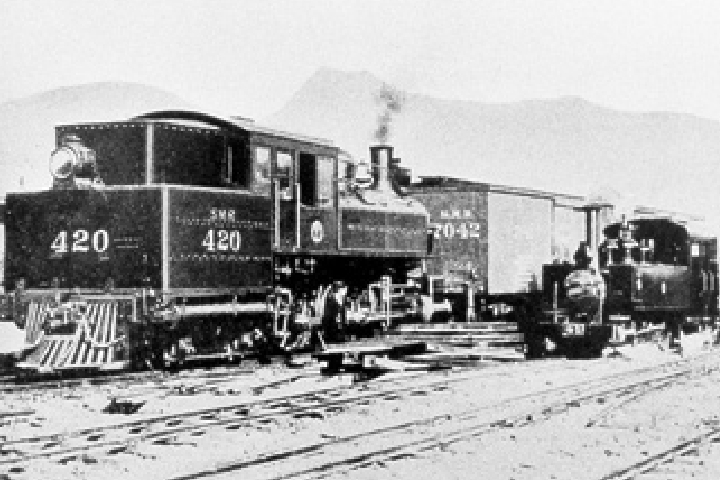
Providing axle oil to Manchuria Railway to prevent freezing
Learn more
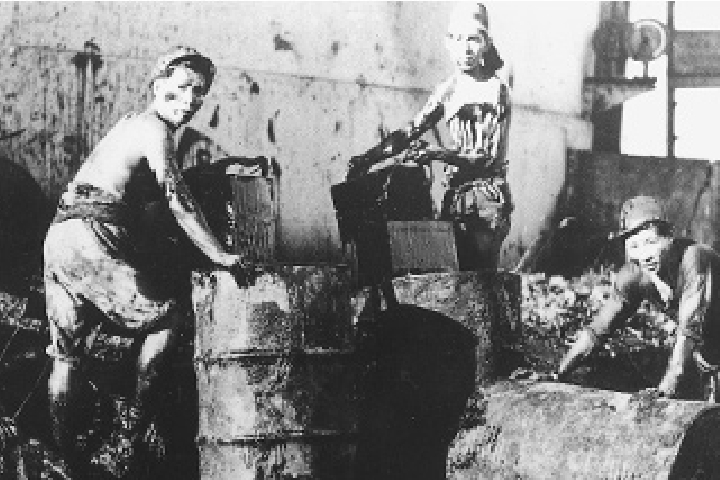
Collect residual oil at the bottom of the tank
Learn more
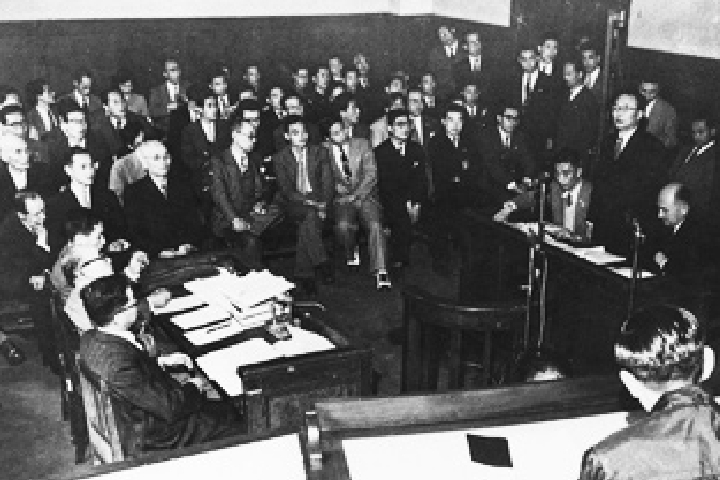
Nissho Maru Incident
Learn more

Refinery constructed in just 10 months
Learn more

Knowing Sazo Idemitsu through words
maxim
Idemitsu's five principles
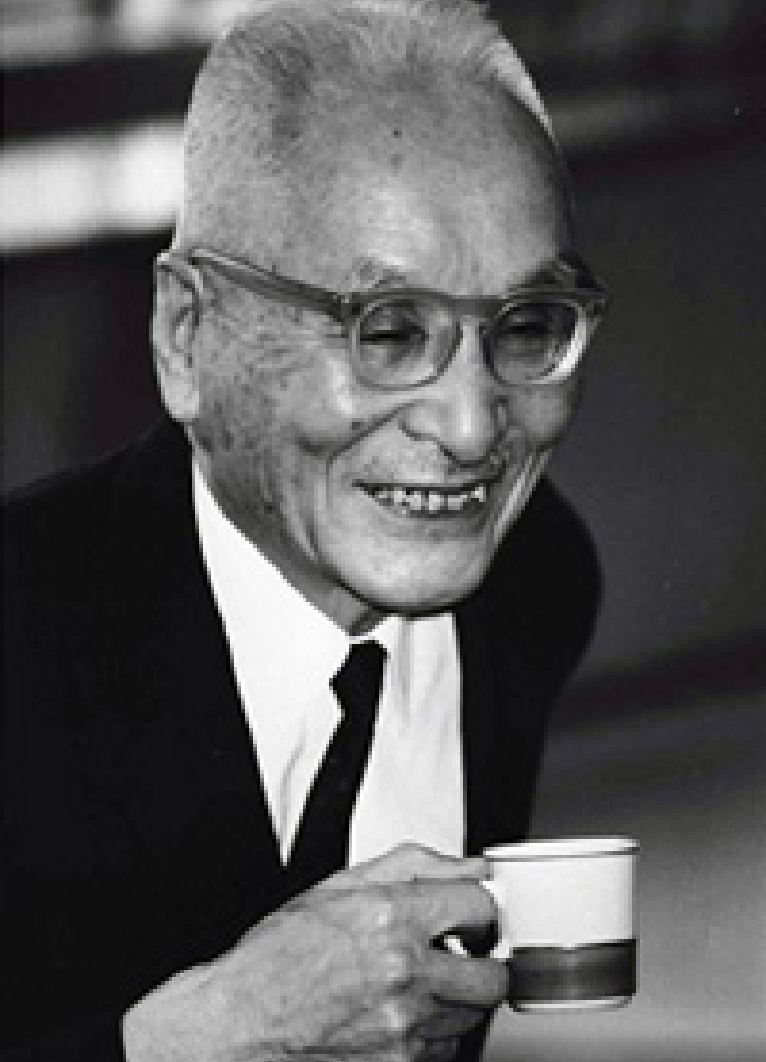
Ningen-Soncho
First, the first principle of Idemitsu Shokai is Ningen-Soncho, and the second and third principles are respect for people.
First, Idemitsu Shokai respects the personality of its constituent members, the store staff, and cultivates, cultivates, and forges it.The individual personality that has been perfected and strengthened in this way is further grouped, united, and strives for greatness as a group. It is our principle and policy to demonstrate our abilities and work hard for the sake of the country and the people.
First, it is a society created by humans. Human beings are at the center, and it is only natural that we should respect humans and respect ourselves. Various policies and measures will emerge as derivatives of this.
extended family
First, once a person joins Idemitsu Shokai, he or she wants to join the company as if he or she had a child in his or her family. All matters in the store are resolved with the feeling that we are both parents and children, older brothers and younger brothers.
First, it is common knowledge that Idemitsu Shokai does not cut off its head. I don't think there is a single person who thinks that they will be decapitated.
independence and self-government
First, I am not the only one who is independent in my work. Each clerk is independent in his/her own position. In other words, one should take full responsibility within the scope of one's own work and carry out the affairs to the fullest.
First, in private life and public life independence and self-governmentIdemitsu Shokai where store employees who have mastered the great spirit of the company and have been individually trained and strengthened, unite in unison under the store's overall policy and demonstrate their collective strength.
Don't be a slave to gold
First, Idemitsu Shokai 's goal should be business. Don't make money your goal. However, I am not saying that we should despise money or treat it lightly.
First, we need to make a lot of money to fund our business. We also have to save money. We must avoid wasteful spending. (Omitted) However, you must not make money in a way that will hinder the future progress of your business. Business should be the main thing, and capital accumulation should be the secondary, and we must not err on the side of this.
From producers to consumers
First, when we founded our company, we first decided to base our sales principles on the benefit of society. We have established a policy that focuses on consumers rather than producers,as suggested by Professor Uchiike*.
First, search for consumers on behalf of producers, and provide consumers with specialized knowledge about changes in the production world, the status of quality improvement and development, the balance of supply and demand, market conditions, price fluctuations, etc. I believed that institutions that provide mutual benefit are absolutely necessary for the constitution of society, and that they will last forever together with society.
*Mr. Uchiike: Professor Renkichi Uchiike of Kobe High School of Commerce, from which Sazo graduated. In charge of lectures on "rationing theory."
Shikon business acumen
Learn more
mutual aid
Learn more
Be pessimistic in good times and optimistic in adversity.
Learn more
Second Articles of Incorporation
Learn more
Return to the bottom of the tank
Learn more
Each person is a manager
Learn more
selfless
Learn more
Failure is a tuition fee
Learn more
action statement
Learn more
thorough kindness
Learn more
Strive to overcome difficulties
Learn more
self-questioning
Learn more
Tribulation will make you a ball
Learn more
Do morals change with time and society?
Learn more
Go back to Japanese
Learn more
Humans work all their lives.
Learn more
Be a rich person in heart, don't be a poor person with money.
Learn more
People who deserve respect grow with the hands of love.
Learn more
Idemitsu seen in the video
Information about Idemitsu Founding History Materials Room
The Idemitsu Foundation History Room is located in the Idemitsu Museum of Arts (Moji), which is in a corner of Mojiko Retro in Kitakyushu. The exhibition was completely renovated to mark the 100th anniversary of Idemitsu's founding. Please come and see the footsteps of Sazo Idemitsu.
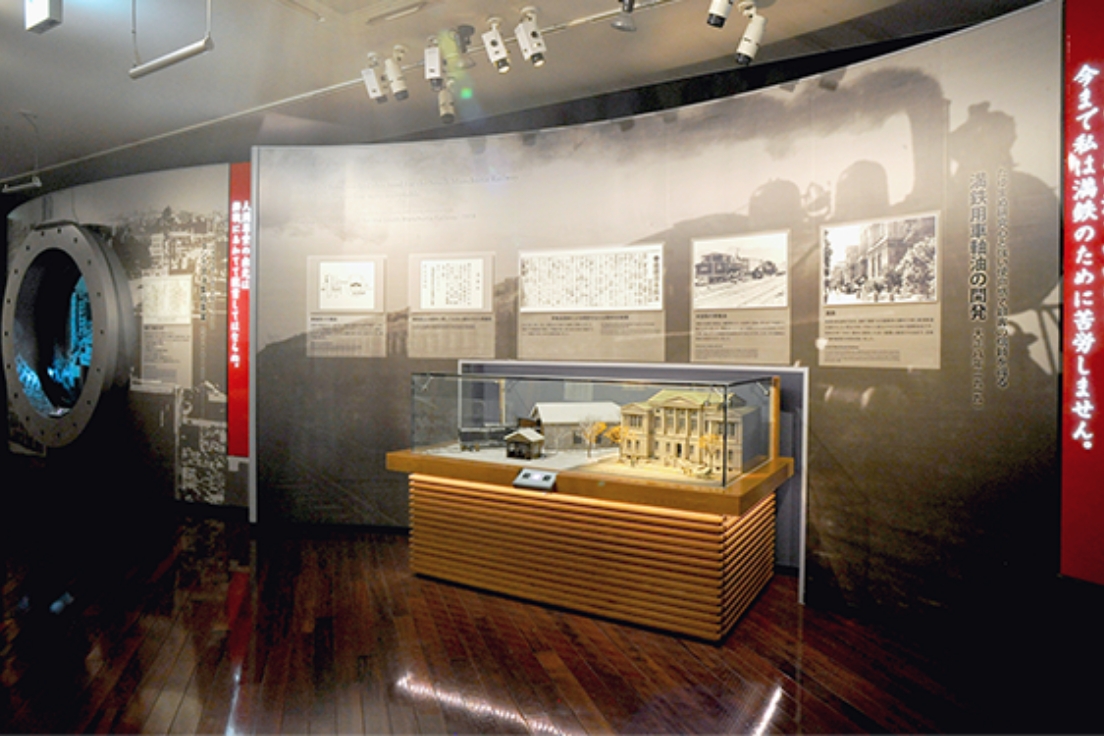
Information on Idemitsu Human Gallery
The Idemitsu Human Gallery introduces and exhibits the ideas of the company's founder, Sazo Idemitsu, as well as the company's history and management philosophy.
Now, in order to be able to communicate the history and initiatives of the Idemitsu Group to as many people as possible, we are opening the facility to shareholders and the general public.
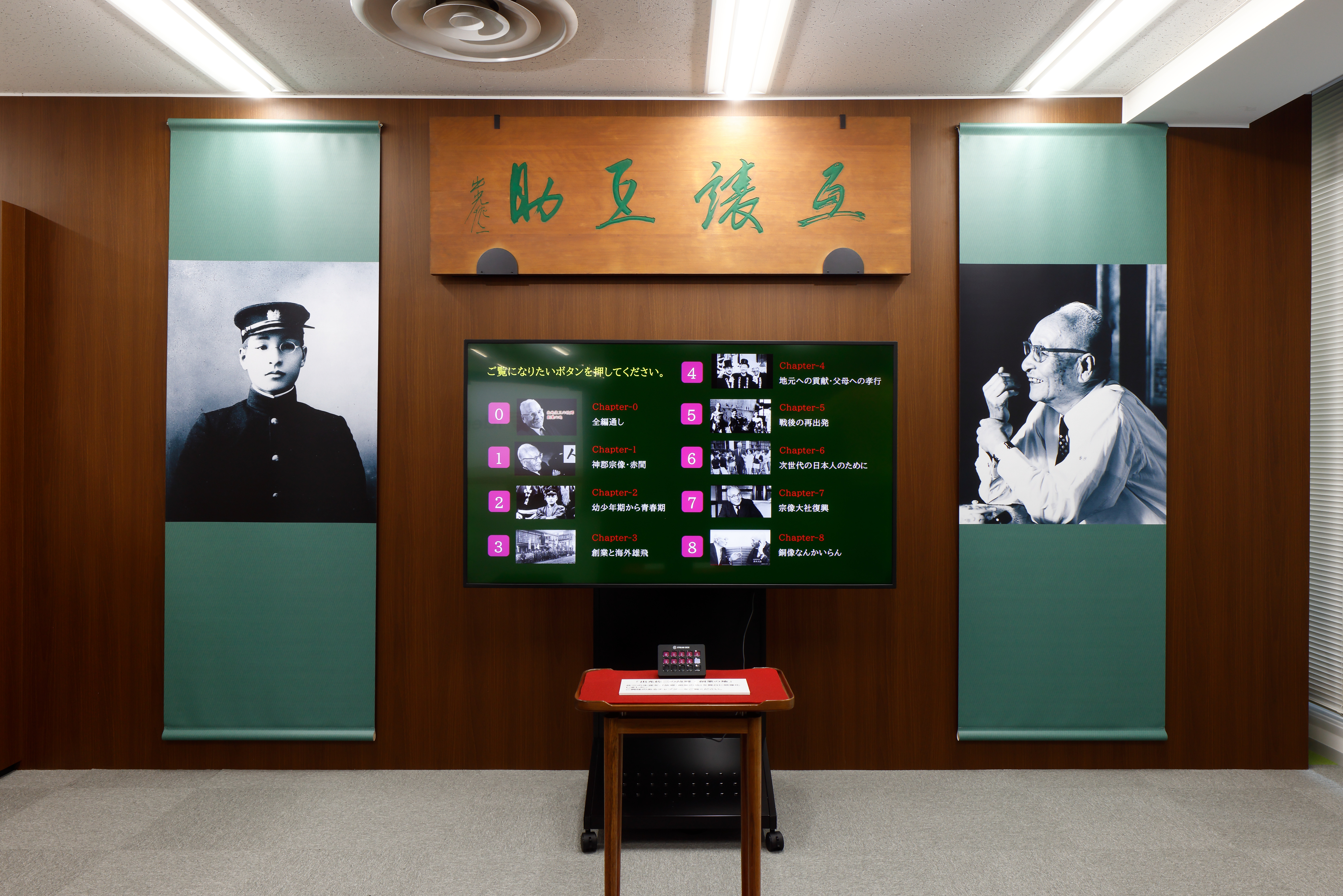
copyrighted work
The main books written and related by our founder, Sazo Idemitsu are as follows:
*Please check with your local bookstore for sales information.
-
If Marx had been born in Japan <New Edition> / Shunjusha / Sazo Idemitsu
-
Capitalism for the Working People <New Edition> / Shunjusha / Sazo Idemitsu
-
"The World of People" and "The World of Things" <New Edition> / Shunjusha / Sazo Idemitsu
-
70 Years Ningen-Soncho /Shunjusha/ Sazo Idemitsu
-
The words of the soul of Sazo Idemitsu / Kairyusha / Bonbu Takiguchi
-
Sazo Idemitsu Do not be a slave to gold / Minerva Publishing / Takeo Tachibana
-
Sazo Idemitsu 's rebellious words: The life of a man who maintained his pride as a Japanese / PHP Business / Yo Mizuki
-
Sazo Idemitsu 's Go back to being Japanese / Asa Publishing / Yoshitaka Kitao
-
Sazo Idemitsu Idemitsu, a Business Man with a Samurai Spirit and Business Acumen / PHP Bunko / Masatsugu Kimoto
-
Biography of Sazo Idemitsu- The Path of a Samurai and Business Talent / President Inc. / Hideji Takakura
-
Novel Sazo Idemitsu- A Portrait of a Burning Man / Republisher.com / Masaji Kimoto
-
Idemitsu Kosan's self-reform/Yuhikaku/Hitotsubashi University
-
Record of Life and Death - Continued Sanriku Story/Mainichi Shimbun/Shinya Hagio
-
The Man Called Pirate (Volumes 1 and 2) / Kodansha / Naoki Hyakuta
-
The Man Called Pirate (Volumes 1 and 2) Paperback Edition / Kodansha / Naoki Hyakuta
-
The Man Called Pirate (volumes 1 and 2) paperback edition / Kodansha / Naoki Hyakuta (illustrations by Soichi Sumoto)
*"The Man Called Pirate" is published as a fictional novel based on the founder of the company.
